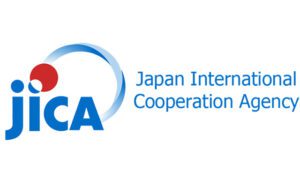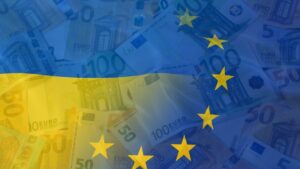
At a meeting with Foreign Minister of Saudi Arabia Prince Faisal Bin Farhan Al Saud, Minister of Foreign Affairs of Ukraine Dmytro Kuleba asked Saudi Arabia to help solve the fuel crisis in Ukraine, and also discussed ways to unblock food exports from Ukraine to Arab and African countries.
“Met with my Saudi counterpart Prince Faisal Binh Farhan Al Saud. Ukraine and Saudi Arabia are friends and partners. Focused on ways to unlock Ukraine’s food exports to Arab and African countries. Kingdom can play an important role. I also asked Saudi Arabia to help us resolve our fuel crisis,” Kuleba tweeted on Wednesday.

On May 24, Ukraine received a JPY 13 billion or $100 million loan from the Japan International Cooperation Agency (JICA) on concessional terms with maturity period of 30 years at 1% per annum with a grace period of 10 years, the Ministry of Finance has reported.
“The agreement is the first part of the agreed financial assistance between Ukraine and Japan,” the Finance Ministry said in a release on Tuesday.
The ministry said that the funds will be directed to the state budget to finance priority expenses, to support the most unprotected population of Ukraine, in particular, to ensure priority social and humanitarian expenses, and health care.

President of Ukraine Volodymyr Zelensky said that the main task of the international advisory group of specialists on security guarantees for Ukraine will be the development of such guarantees that will work throughout the life of many generations of Ukrainians.
According to him, the President’s Office and diplomats continue to work to ensure that Ukraine receives reliable guarantees of its own security after the end of the war.
“In particular, the international advisory group headed by Yermak and ex-NATO Secretary General Rasmussen was established. The group will include leading experts in the field of security and defense, diplomacy. Their task is to develop a format of guarantees that will really work, moreover, work not for several months or a year, but throughout the life of many generations of Ukrainians,” Zelensky said in an evening video message on Tuesday.
As reported, on Tuesday, May 24, head of the Office of the President of Ukraine Andriy Yermak announced the creation of an international advisory group that will provide proposals on security guarantees for Ukraine.
It will be headed by Andriy Yermak and ex-NATO Secretary General Anders Fogh Rasmussen.

The Council of European Union has adopted two assistance measures under the European Peace Facility (EPF) that will allow the EU to further support the capabilities and resilience of the Ukrainian Armed Forces to defend the territorial integrity and sovereignty of the country, and protect the civilian population against the ongoing Russian military aggression.
“After having adopted three tranches of support totaling EUR 1.5 billion this year, a fourth tranche will add EUR 500 million to the resources already mobilised under the EPF for Ukraine, thereby bringing the total amount to EUR 2 billion, ” the press service of the EU Council said.
“The history of tomorrow is being written today, on the battlefields of Ukraine. With these EUR 500 million, the EU has allocated a total EUR 2 of billion to support EU member states’ supplies of military equipment to the Ukrainian Armed Forces. This support is just one part of European efforts to help Ukraine defend itself. The EU and its member states are determined to continue. We have done it since the beginning of the war and we will continue until the end,” Josep Borrell, High Representative for Foreign Affairs and Security Policy, said.
It is noted that the scope of the equipment to be provided in the new support package is in line with the current priorities as expressed by the Ukrainian government. In this light, the assistance measures consist of EUR 490 million for military equipment designed to deliver lethal force for defensive purposes, as well as EUR 10 million intended to cover the provision of equipment and supplies, such as personal protective equipment, first aid kits, and fuel.

The international conference on the reconstruction of Ukraine after the war will be held in the summer in Lugano, said Swiss President Ignacio Cassis.
“The conference, co-organized by Ukraine with Switzerland, will be held in Lugano, Switzerland in early July this year,” Cassis said at the annual World Economic Forum in Davos on Monday.
According to him, this will be a conference on the reconstruction of Ukraine.
“When the war is over and the guns are silenced, all our efforts must be focused on reconstruction. Let the reconstruction and elimination of Ukraine’s economic consequences go through a broad political and diplomatic process. The Lugano conference is an opportunity to discuss this difficult path to recovery with all key stakeholders. parties, “he added.
According to Cassis, the conference will be a starting point in the process of rebuilding Ukraine.
According to the President of Switzerland, 40 countries and 17 international organizations have been invited to take part in the high-level conference.

Pentagon Chief Lloyd Austin said that 20 countries have decided to send additional military assistance to Kyiv.
“About 20 countries have announced new security assistance packages. Many countries are donating critically needed artillery ammunition (…), tanks and other armored vehicles,” Austin said at a press conference on Monday following a meeting of the Ukrainian Defense Contact Group.
He said that other countries have taken on new commitments to train the Ukrainian military.
Austin thanked the Czech Republic for its significant support, including the recent transfer of combat helicopters, tanks and missile systems.
In addition, the chief of the Pentagon announced Denmark’s decision to send Ukraine a Harpoon anti-ship missile launcher and ammunition.
In addition, the Pentagon chief welcomed the contribution of Italy, Greece, Norway and Poland to the supply of Ukraine with artillery. Separately, Austin noted the role of Britain in coordinating the transfer of military assistance to Ukraine.
The chief of the Pentagon announced that the third meeting of the Ukrainian Defense Contact Group will be held on June 15 on the sidelines of the meeting of NATO defense ministers in Brussels.
The group’s first meeting took place in April at Ramstein Air Base in Germany.